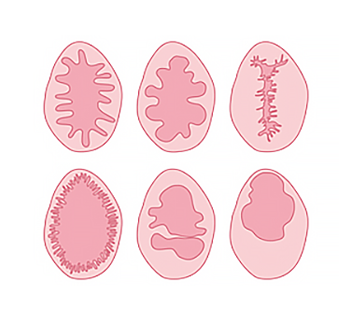How well do you know your vagina? 4 common misconceptions

It’s fair to say that the vagina is having a bit of a moment. From the flurry of discussion in pop culture to the ongoing buzz around menstrual cups. So then why is there still so much confusion about female anatomy? Let us demystify 4 of the most common misunderstandings…
1. Having lots of sex gives you a loose vagina
Nope! This is perhaps the most widely misunderstood fact about the female anatomy. It takes much more than regular sex to permanently stretch or change your vagina. Your vaginal tissue is very elastic and flexible – a bit like a rubber band. The vaginal walls are actually made up of tightly folded muscle that can temporarily expand and stretch to accommodate a finger, massager or penis (and other less fun things like tampons and menstrual cups).
After that object is removed your vagina quickly returns to its normal size and shape. Certain things like age, childbirth and changes in hormones during pregnancy or menopause can have longer-term effects on your vaginal tissue.
However, there is one very easy way to keep those muscles toned and tight – Kegel exercises. Kegels strengthen the oft-neglected pelvic floor muscles – the muscles that support your pelvic organs, control your bladder and improve the strength of your orgasms. Pretty important, right?
If you find your solo Kegel routine just isn’t cutting it, then try a smart Kegel trainer. A trainer can take your exercise to the next level, by automatically registering and tracking your strength and then selecting the perfect routine for your strength level. The best exercisers actually guide you through each routine using gentle vibrations.
If you need to get back to basics with your Kegel routine, then check out our beginner’s guide here. So next time you’re worried that you’re having a little too much fun in the bedroom – stop stressing (and maybe try a few Kegels out on your partner for fun)! Trust in your vagina, it’s stronger than you think.
2. Everything ‘downstairs’ is the vagina
It’s all just vagina, right? Wrong! Anatomically speaking, the vagina is actually just the passage from the vulva to the cervix.
The vulva is a term that encompasses all of your external genitalia, including your clitoris, labia, vaginal opening, urethral opening (where we pee from). Your internal anatomy includes the vagina, cervix, uterus, ovaries.
3. Your hymen gets broken or “pops”
For some reason, there is a wealth of misinformation out there about the humble hymen. So what exactly is it?
The hymen, or vaginal corona, is a leftover from our development as a fetus, it used to be a sheet of flesh protecting our delicate internal organs in the womb. As we grew up, this fleshy wall dissipated, and so we are left with some hymen tissue surrounding the entrance to our vaginas.
For the vast majority of women, the hymen is just a tiny bit of leftover tissue, far from the solid barrier that some believe it to be. It is absolutely not a marker of virginity, and for most women it has no effect on their first time, or their ability to use a menstrual cup or tampon.
Any pain or bleeding you experience during your first time is more likely due to inexperience (of both partners!). Hymens come in all shapes and sizes, does yours look like any of the ones in the diagram? Grab a mirror and have a look!

Source: RSFU
4. Vaginas smell
This might come as a shock, but your vagina isn’t supposed to smell like a bed of roses, a sweet perfume OR a fresh ocean breeze. It’s supposed to smell like a vagina. Your reproductive organs are wonderful things, fully capable of maintaining and cleaning themselves.
Imagine your vagina as working in a very similar way to your eyes, with discharge acting a lot like tears – a natural cleanser. Ignore any advice to douche or undertake other intrusive, harmful cleaning routines. These can strip your vagina of its natural flora and upset your delicate pH, potentially causing yeast infections, or similar.
Imagine your vagina as working in a very similar way to your eyes, with discharge acting a lot like tears. Stick to a gentle, pH balanced cleanser, and only use it on your vulva. If you have any concerns about unusual discharge or smells, then contact your physician to make sure everything is healthy down there.
Vaginas, just like people, come in all shapes and sizes. So next time you’re feeling inquisitive about your intimate area, take the time to educate yourself. It will make you feel smarter, stronger – and sexier.

A collective group of “lady experts” at Intimina who love sharing our personal experiences, even when they are a little too personal. We believe it’s time to start breaking down the taboos around menstruation, motherhood, and menopause, and start owning our female health.



